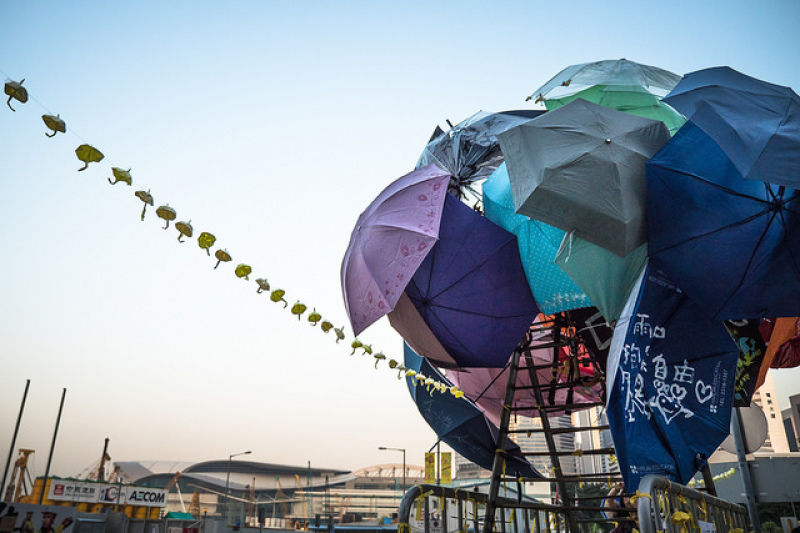

The Occupy Central Movement comes to an end as Hong Kong police clear the major protest site in Admiralty.
Starting Thursday morning, the Hong Kong government began clearing the main protest site in the Admiralty district, ending the 75-day student lead protest. The Occupy Central Movement with Love and Peace is now coming to a close, for the time being.
The police have been given permission by the government to use force in clearing the site. Two weeks ago, a protest camp in Mongkok was cleared. The authorities have not been shy about the use of pepper spray, tear gas, and arrests to clear the protesters.
7,000 officers started breaking down makeshift barriers around 9 am on Thursday. On Wednesday night, some 10,000 protesters gathered at the main site in a final demonstration and a farewell to the site. Though most of the demonstrators left the site during the clearance, some stayed behind.
Despite their waning numbers, the students in the protest are no strangers to protesting despite the use of force. Images of youth carrying umbrellas and goggles to fend against pepper spray have earned the movement the nickname of "Umbrella Revolution."
Alex Chow, leader of the Federation of Students, told reporters, "Although the government and police use different actions toward protesters, we'll resist until the last moment. It's not simply for us to be arrested, but to demonstrate our spirit and to show the government that, as long as they stick to the decision by the central government released in late August, Hong Kong society will adopt civil disobedience to resist until it reconsiders constitutional reform."
The protest site was covered in banners that read, "We'll Be Back." Student leaders vowed to return to the streets in the future to fight for democracy in Hong Kong. Older promoters of democracy in Hong Kong viewed the movement as a planted seed, which will grow in coming years.
The main purpose of the protests was for the right of Hong Kong citizens to elect their own candidates for a 2017 election without a screening process by the Beijing government. Though none of the protesters' demands were met, the movement is deemed to have had a significant impact on the political terrain of Hong Kong. Some believe the movement was a symbolic passing of the torch from the older generation of pro-democracy advocates to the young students.
"You might have the clearance today but people will come back on to the streets another day," said Chow.



















